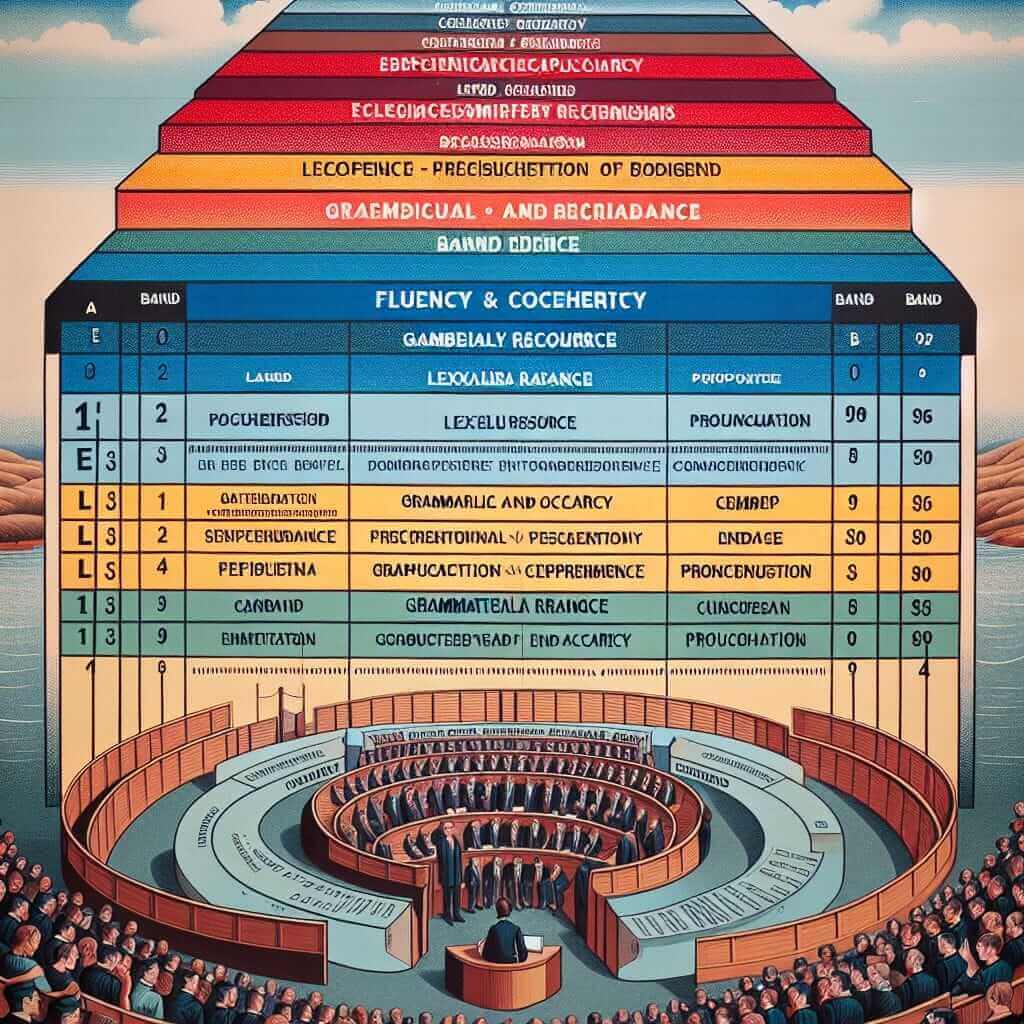As an IELTS instructor with over 20 years of experience, I understand the importance of the IELTS band score and the curiosity surrounding its calculation. This comprehensive guide will delve into the intricacies of how your IELTS score is determined, providing you with valuable insights to maximize your performance.
Understanding the IELTS Band Score
The IELTS band score is a reflection of your English language proficiency across four key skills: Listening, Reading, Writing, and Speaking. Each skill is graded on a 9-band scale, with 9 being the highest level of proficiency. Your overall band score is the average of these individual scores, rounded to the nearest half band.
Deconstructing the Calculation Process
While the concept seems straightforward, the actual calculation involves a detailed assessment of your performance across various criteria. Let’s break down the process:
1. Raw Scores to Band Scores
Each section of the IELTS exam has a specific number of questions, and your raw score represents the number of correct answers. However, this raw score is not directly translated into your final band score. Instead, it is converted into a band score using a conversion table specific to each test version.
2. Weighting of Skills
All four skills hold equal weight in determining your overall band score. This means that excelling in one skill cannot compensate for a lower score in another.
3. Rounding Off the Band Score
As mentioned earlier, your overall band score is the average of your individual band scores, rounded to the nearest half band. For instance, if your average score is 6.25, it will be rounded up to 6.5.
Decoding the Band Descriptors
Each band score corresponds to a specific set of descriptors that outlines the language proficiency level associated with that score. These descriptors provide detailed insights into your strengths and areas for improvement. For instance, a band 7 in Speaking signifies that you are a “fluent speaker” who can “communicate effectively” and “use a range of grammatical structures.”

Illustrative Example from an IELTS Speaking Test
Let’s consider a candidate’s performance in the IELTS Speaking test:
Candidate: The candidate demonstrates fluency and coherence, using a wide range of vocabulary and grammatical structures accurately. They can handle complex ideas and respond effectively to prompts and questions. However, there might be occasional minor errors in pronunciation or grammar.
Examiner’s Assessment: Based on the band descriptors, the examiner might award the candidate a band 8 for Fluency and Coherence, a band 7 for Lexical Resource, a band 7.5 for Grammatical Range and Accuracy, and a band 7 for Pronunciation.
Band Score Calculation: The average of these scores would be 7.375, rounded up to 7.5, which becomes the candidate’s final Speaking band score.
Tips to Enhance Your Band Score
-
Practice Consistently: Regular practice across all four skills is crucial. Familiarize yourself with the test format, practice answering sample questions, and seek feedback from experienced IELTS instructors.
-
Focus on Fluency and Coherence: Maintain a natural flow of speech, connect your ideas logically, and avoid long pauses or hesitations.
-
Expand Your Vocabulary: Enhance your vocabulary by reading extensively and learning new words and phrases in context.
-
Master Grammatical Structures: Develop a strong command of English grammar rules and practice using a variety of sentence structures accurately.
-
Refine Your Pronunciation: Pay attention to your pronunciation, stress, and intonation. Listening to native speakers can significantly improve your pronunciation skills.
Conclusion
Understanding how your IELTS band score is calculated is essential for effective preparation and achieving your desired results. By focusing on each skill area, practicing regularly, and refining your language proficiency, you can maximize your chances of success in the IELTS exam. Remember, achieving a high band score is a journey that requires dedication, consistent effort, and the right guidance.